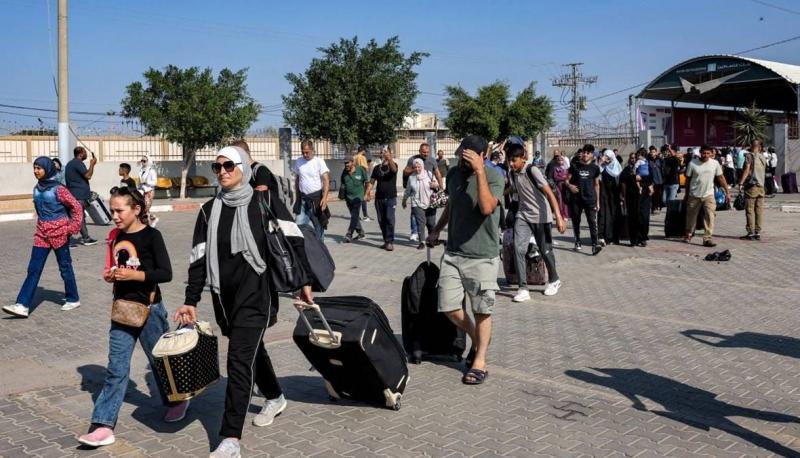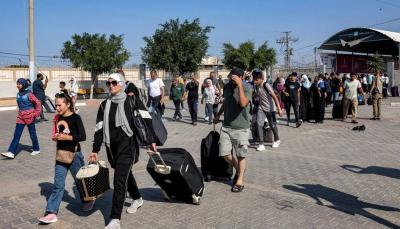Many Israelis are not only unable to think of this as a paradox but also cannot believe that it seems strange to foreigners. However, there are Palestinians in Gaza saying: "My land is five miles from here, and they took it to give it to men from ten thousand miles away." The divergence of opinion is irreconcilable. Nonetheless, the degree of stubbornness expressed varies according to the political views known to your translator, who is usually an official in the camp, and the men among the refugees with the most material and education, who speak English or French, are generally the most logical of all. One of them told me: "I will go back and see if I can live happily in the new environment." I was warned against him as being reckless. He added: "Then I will see if I can sell everything I have and go to where I feel I have more freedom."
The expulsion of the Egyptians last November provided an opportunity for connection between current and former Palestinians. The opportunity still exists as long as the Egyptians are no longer there. However, the Israeli military incursion led to the closure of the most important source of external revenue in the sector, alongside UNRWA's contribution to the economy. This money was sent home by between five and ten thousand men from the Gaza Strip working in oil fields in Saudi Arabia, Kuwait, and Qatar. The Egyptian authorities, while in charge, prevented Gaza residents from entering Egypt further than the Al-Arish oasis (although it excluded Gaza students studying at Egyptian universities), but allowed men to leave the sector to work in oil-producing countries. Palestinians are often more literate and always more technically advanced than the Arabs of Hijaz or, in this regard, than the Egyptians. Therefore, their labor is expensive in the primitive Arab lands, and the revenues they send back home are estimated between twenty-five thousand and one hundred thousand Egyptian pounds monthly.
The people of Gaza, when they talk about money, speak in Egyptian pounds, which officially equals two dollars and eighty cents. The Israeli pound, which officially equals fifty-five cents, has seen slow acceptance in the sector, and before their withdrawal from Gaza, Israeli forces could get between seven and ten Israeli pounds for one Egyptian pound, creating a wonderful opportunity for quick profits in what was believed to be called arbitrage. In the same week in Beirut, I learned that one Egyptian pound could be purchased for two dollars.
When the Israelis took control of the sector, all communications with the Arab countries were naturally severed as Israel is still technically at war with them. One of the first and most urgent tasks for the United Nations administration in Gaza will be to keep the sector open to communication and economic exchange on both sides. Perhaps we can get these people out of that submarine.




